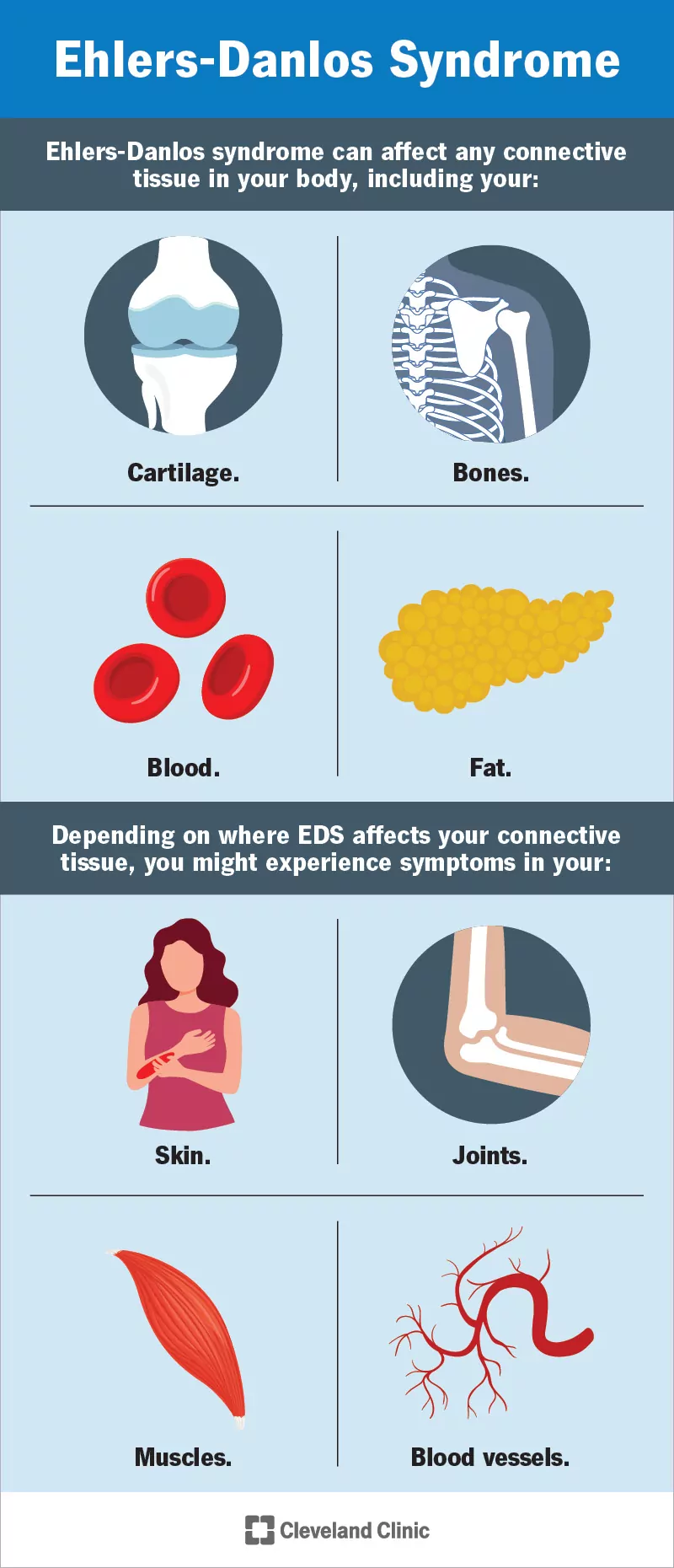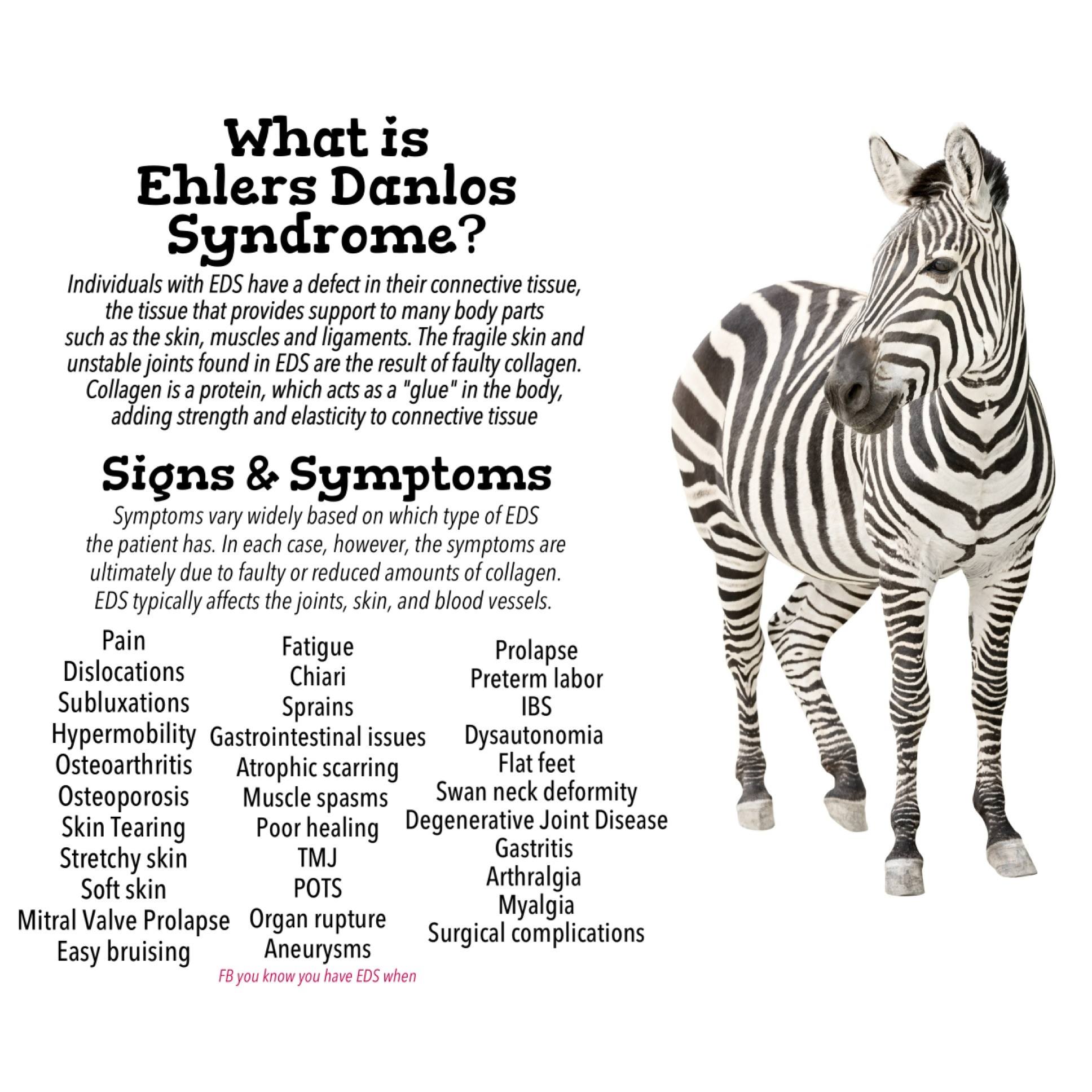Table of Contents
- Access All Our Original Ehlers Danlos Syndrome Hyperm - vrogue.co
- Healthcare | Free Full-Text | Pain in Ehlers–Danlos Syndrome: A Non ...
- Ehlers Danlos Syndromes Types Symptoms Causes Treatme - vrogue.co
- Ēlersa-Danlosa Sindroms: Simptomi, Cēloņi Un ārstēšana - LV SFOMC
- Ēlersa-Danlosa Sindroms: Simptomi, Cēloņi Un ārstēšana - LV SFOMC
- What is Ehlers-Danlos Syndrome ? – My Health Maven
- Ehlers-Danlos Syndrome and Autism
- Ehlers-Danlos syndrome affects millions. Why isn’t the medical ...
- Ehlers-Danlos Syndrome Types
- Ehlers Danlos Syndrome Vascular Type



What is Ehlers-Danlos Syndrome?


/dense_irregular_conn_tissue-5b68c5db46e0fb0050b3a01b.jpg)

Symptoms of Ehlers-Danlos Syndrome


Diagnosis and Treatment
Diagnosing EDS can be challenging, as the symptoms can be similar to those of other conditions. A diagnosis is typically made through a combination of: Physical examination Medical history Genetic testing Imaging studies (e.g., X-rays, MRI) While there is no cure for EDS, various treatment options can help manage the symptoms. These may include: Physical therapy to improve joint stability and strength Occupational therapy to develop coping strategies Pain management medications Wound care and management Cardiovascular monitoring and treatment Orthopedic interventions (e.g., surgery, bracing)
Living with Ehlers-Danlos Syndrome
Living with EDS requires a comprehensive approach to management, including: Lifestyle modifications (e.g., exercise, stress management) Dietary changes (e.g., increasing collagen-rich foods) Regular medical check-ups Support from family, friends, and support groups Access to specialized healthcare professionals (e.g., geneticists, orthopedic specialists) Ehlers-Danlos syndrome is a complex and multifaceted condition that requires a thorough understanding of its causes, symptoms, and treatment options. By seeking medical attention and working with a healthcare team, individuals with EDS can manage their symptoms and improve their quality of life. For more information on EDS, visit MedlinePlus, a trusted online resource that provides accurate and up-to-date health information.Keyword density: Ehlers-Danlos syndrome (1.5%), MedlinePlus (0.5%), connective tissue (0.5%), genetic disorder (0.5%), collagen (0.5%)
Note: The keyword density is calculated based on the total word count of the article. The recommended keyword density is between 0.5% to 1.5%. This article is optimized for search engines with the following meta tags: Title: Understanding Ehlers-Danlos Syndrome: A Comprehensive Guide Description: Learn about Ehlers-Danlos syndrome, a group of genetic disorders that affect the body's connective tissue. Discover its causes, symptoms, diagnosis, treatment options, and management strategies. Keywords: Ehlers-Danlos syndrome, MedlinePlus, connective tissue, genetic disorder, collagen.